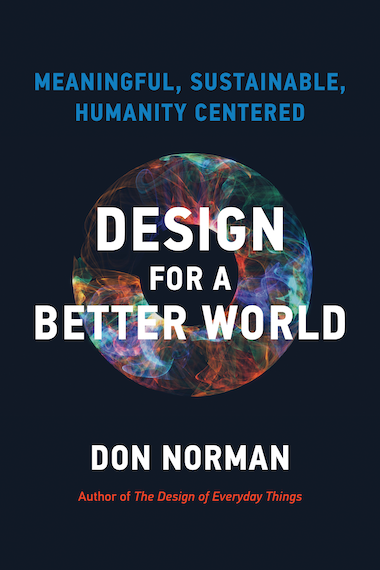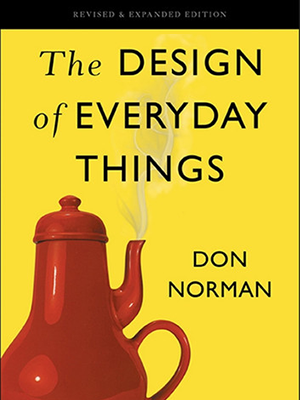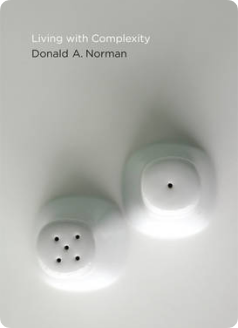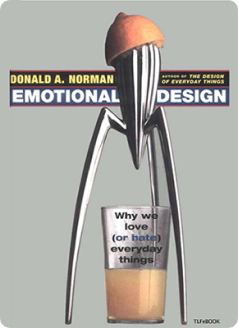Essays & Articles
DBW: Chapter 6. Overview of the DBW book: Meaningful, Sustainable, Humanity Centered
Our lives are controlled by the measurement tools of science, by the needs of industry. Industry, in turn, is controlled by the economic theories of the world and by the need for currency to pay for materials, equipment, transportation, and, of course, labor. All of this is controlled by laws, regulations, and customs, all of which are artificial procedures devised by people. Those in charge often define these rules and procedures for their own benefit and impose them upon others, who must obey these artificial and often quite arbitrary dictates.
Business schools and the financial community have defined the goals of industry as growth and the promise of increasing profits. Where did these goals come from? They were invented by businesspeople, merchants, and bankers, then codified into mathematical theories by economists that have influenced the laws and regulations that govern our lives.
The push for growth and profits has also meant using the apparently infinite resources of the earth as a source of materials to make products and the apparently infinite waterways, seas, and atmosphere as a place to dump the waste products of manufacturing and usage.
But the earth is not infinite, and today the finite capability of its natural resources has been exceeded. Temperatures are rising, the atmosphere is becoming poisonous, food is less and less healthy as the number of chemicals necessary to grow it in overplanted farms has increased. How can this be changed? Only by a sufficient number of people working together with businesses, educators, and politicians. Change is essential to allow the earth to come back into balance, to allow the lives of people to become more balanced. It is a huge job that requires many people and many changes in the way that we live.
In this book, I address the same issues that many people, organizations, and books have addressed, but from a different perspective. Most of the other approaches focus on either the technological approaches or the policy changes that will help us change our ways. Those approaches are essential, too, but my focus is on the human side, ensuring that whatever activities take place prioritize the impact on people, their ways of living, and the quality of their lives. These changes require the support of the people of the world, for without that support it will not be possible to change policies or implement technological solutions.
What Is Missing?
In this book, I cover many fundamental aspects of our lives that are fueling the current ecological and social crises, behaviors that must be changed to minimize the harm to the ecology and the globe and to minimize the extreme weather patterns that have already started but must be contained. My intention is to focus on the human behavior that has had major negative ecological impacts on the planet and that today impedes the attempts to address the issues. If these behaviors are not changed, everyone’s lives will be irreversibly harmed. The planet is not in danger: it has survived many mass extinctions and transformations. It will survive this one, although it will be a changed planet. Even if human beings survive, our lives will be much altered.
This focus means that I don’t have the space to cover the major societal issues of prejudices of every sort or the inequities in how people are treated, in where they live and go to school, in where they work, and in how they are treated and paid. I do discuss the financial systems of the world and how they dominate so much of the lives and behavior of governments, companies, and people throughout the world, but I don’t discuss how to counter any of these issues.
The governance of the world is artificial, biased; in many places it is arrogant, dictatorial, or corrupt. The governmental structure of most democracies attempts to balance the conflicting interests and points of view of the country’s citizens. The result, however, can also lead to stalemates: an inability to get things done. Even when the parties agree to take action, the legislative process requires many accommodations to account for the conflicting opinions and get sufficient votes for passage. These requirements can lead to so much weakening of the critical aspects of legislation that it ends up being powerless and meaningless. I don’t talk about that.
I also do not discuss the way technology is being used to control our behavior, to spy on us in part to increase the dominance by companies upon us to seduce us into spending more and more time in their spheres of influence as well as the dominance by governments, police agencies, and political parties to get us to behave in certain ways.
I don’t talk about many other important things, even though they are things I personally care about. I believe strongly that we must change how people treat one another. We need to judge people as individuals, not as members of rigid categories. Not by how tall or short they are, thin or fat; not by the color of their skin, or whether they have a physical deformity; not by religion or creed or what nation they come from; bot by gender; not by how much money or access to power they have. Our systems today are horribly biased, in many cases unwittingly in part because the factors that lead to these biases and unfair treatment have been in place for so long that we think of them as natural. We seldom question the way things are. And many of the biases are against people who are different, whether by accent or language, gender, race, physical appearance, or abilities. Many of these prejudices and biases are deliberate, though, and completely inexcusable.
Nature is biological, and biological is not digital—or, to be more precise, binary. Summer does not suddenly become fall or winter: there are many subtle in-between states. The differences between plant and animal species are not sharp boundaries: they are graded. So, too, the same can be said of skin color, race, and religious beliefs. The distinction between species is graded, often continuous, the boundaries unclear. The philosopher Ludwig Wittgenstein long ago wrote about the difficulties of forming rigid categories. Language itself is deliberately ambiguous. If I sit on an upside-down wastebasket, a basketball, or a soccer ball, do they suddenly transform themselves into chairs? And what about the distinction that has caused more political difficulty than all—gender? Nature does not have strict boundaries. It is analog, biological, graded. Male and female, yes, but many shades in between, and because male and female are determined by many variables, there are many existing mixtures of the variables. We need to respect people as individuals and not force them into tightly, artificially defined categories.
Although these issues are not within the scope of the book, please do not interpret their absence as a lack of concern. I have benefited from interactions with many people who work to eliminate these injustices, interactions that have taken place in person, via video discussions, and through their writings and books. In the notes to this chapter, I list some of the important books that have changed my understanding of the world. I am thankful to all those people who spent time with me, educating me.
What Is Included: What This Book Is About
I cover some of the fundamental issues of our society:
Artificiality. Because most of the things that sustain our civilization are created by people, they are artificial. Behaviors, beliefs, and cultural values are also artificial. They are difficult to change because people have been guided by their culture’s beliefs and values for so many generations, they assume they are natural, proper, and unchangeable. But because these are artificial, they can be changed.
Technology by definition is artificial, and its power has constrained and defined the structures of our society. It has often done so unwittingly, but the very invention of many important technologies has made certain societal structures and behaviors seem natural, even while they dominate and change everyday life. The power of technology and of the mathematics invented to serve technology, coupled with the language used to describe and explain the technology, is often unintelligible to non-technologists. Worse, the mathematics and science underlying the technologies are often applied even in situations where doing so is inappropriate. I single out economics, where everything from income to happiness to the worth of people and countries is measured on the same scale: money. The result is that people and societies follow the dictates of science and technology without understanding that many of the guiding principles are arbitrary, often simply to make it easier for the scientists and technologists, with little attention to the negative impact on society.
The emphasis on STEM—science, technology, engineering, and mathematics—leaves out humanity. We have become the servants of technology. Wasn’t it supposed to be the other way around, with technology serving people? Unfortunately, the STEM fields do not consider any of the many fields of knowledge that do understand people, society, the arts, literature, and other things that make life worthwhile.
The emphasis on technology as the solution to all that ails us but without any consideration of people, lives, and the ecology of the planet has led us to the Age of Waste, where the waste products of our technological, industrial society, conveniently labeled as “externalities” so that nobody is responsible for them, are leading to the destruction of life on the planet.
We need to put the ecological and humanistic issues and values first and to downgrade everything else.
That’s all. Just a few simple fundamental issues of our society. Which is why I didn’t have room for all that I left out. If there is one theme to this book, it is that we need to return to human values, to focus on humanity. It is human behavior, guided by STEM and economics, that got us to today’s state, so it will have to be human behavior that gets us out. We are faced with numerous technical issues, but the most difficult issue of all is human behavior, the theme of this book.
If the major theme of this book is people and human behavior, why do I talk so much about the role of design? Because more and more the role of designers is to act as the interface among technologies, policies, and people. Design is the major discipline that understands people and focuses its attention on their needs and understanding. Today, that focus must expand to encompass humanity, which means all living things, the world’s ecosystems, and the complex system in which we all live. That is the focus of this book.
If this book can make a difference, I will be pleased, but I will not be content until all injustices are dealt with.
The Role of Design
Design must change from being unintentionally destructive to being intentionally constructive. Repairing what has gone wrong—repairing, collaborating, sustaining. The massive changes that we must make require us to rethink the fundamentals of our way of life, which means our industries, schools, governments, and the economic systems that measure and define what is considered “good.” Because our way of life is artificial, designed by people over the course of history, it can be changed by people over the course of the future.
The book is organized into six parts. Part I has introduced the book and, most importantly, the notion that almost everything that concerns human life is artificial. Parts II through IV cover the current issues, and parts V and VI focus on actions that must be taken and the reasons they are so difficult to achieve.
Parts II, III, and IV examine the main themes: we need to transform our lives so that they are meaningful (part II), sustainable (part III), and humanity centered (Part IV). Here is a brief overview of these three critical causal foundations of many of the planet’s ecological ailments.
Meaningful
People seek meaning in all aspects of life, in their jobs or schooling, in their family and social interactions, and in the artifacts they own or create. Even an old, out-of-focus personal photograph can have deep, significant meaning. We must make more events meaningful.
Many of the metrics that define modern life, especially for governments and corporations, are unintelligible to the average person, and some of these metrics are unintelligible even to the professionals who must use them. Unintelligible things cannot be meaningful, or if they have any meaning at all, it is negative, filled with the frustration and anxiety that they bring.
We need to measure the things people care about and understand—quality of life, not economics. We must change the metrics used to judge countries and companies to those that enhance the quality of life, not profit and growth. We should use meaningful psychological measures that focus on societal criteria such as wellness, health, education, security, and happiness and stop using economic measures such as GDP, monetary profit, and stock market indexes.
Sustainable
The world is a complex network of interactions. As a result, the major societal issues do not have simple, easy solutions. Two of the major issues, societal resilience and sustainability, require action at multiple levels—local, global, technological, organizational, and political. Natural resources are under attack, in some cases being depleted, in others poisoned. The manufacturing processes of the world produce waste and dispose of it in an irresponsible, harmful way.
There are better models. The one I propose in part III invokes a circular economy, where things can be repaired, renewed, and reused. Even better is when all of the materials used are biological, thereby creating a self-sustaining system, much as exists in nature—a circular economy, where everything is resilient, renewable, reusable, and, as much as possible, regenerative.
Humanity Centered
Projects intended to bring improvement to the communities of the world must be done in collaboration with and by the people for whom the designs are intended, providing them with resources and facilitation from a multidisciplinary pool of subject-matter experts. The design community must stop designing for people without their input or to get people to do or want something and instead act as facilitators and resources to the communities. We need a holistic design with a wide range of expertise in government and law, economics and engineering, health, and education. The complexity of large systems is best dealt with through small and incremental projects, where responses to early work inform and direct later work. Small projects are more acceptable to communities than large ones because they are flexible and responsible. We can address large issues through a multitude of small, flexible projects. Our designs must serve humanity, which also requires that the designs serve the ecosystem.
The goal is to produce a meaningful, sustainable, and humanity-centered world. This requires everyone to rethink and redo the basic premises and ways of being that govern our lives. I have covered the artificiality of lives in this part of the book: part I. Parts II, III, and IV discuss, in turn, the need to make the world meaningful, sustainable, and humanity centered. Now I turn to part II: to what is meaningful.
From:
Norman, Don. (2003). Design for a Better World: meaningful, sustainable, humanity centered. MIT Press



